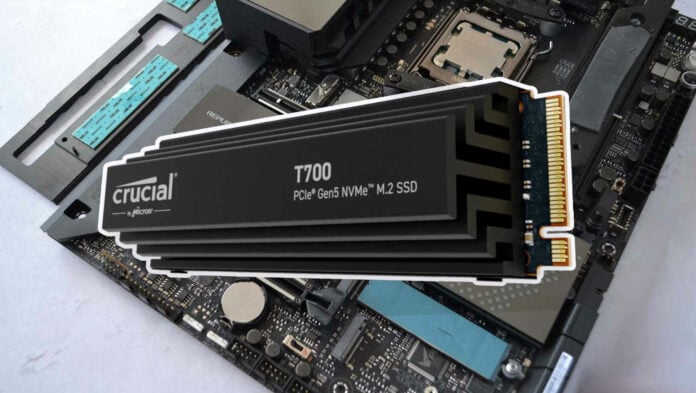AMD is in the spotlight again as some high-end PC owners face degraded M.2 slot performance. The issues seem to be related to Gen 5 SSDs installed on X670E motherboards.
After noticing an increase in support requests from its Gen 5 SSD customers, Crucial opened an investigation to find the root cause. It turned out multiple Gen 5 and Gen 4 SSDs drop to Gen 1 speeds when installed on the Gen 5 M.2 slot of X670E boards. This includes boards from different vendors, as long as the X670E chipset is being used.
As a reminder, theoretically, the Gen 5 M.2 interface is capable of delivering up to 16GB/s of bandwidth. To put it in perspective, Gen 1 slashes that to a mere 1GB/s, before factoring in any communication overheads. Moreover, users hit by this bug can’t even load into Windows, making it even more annoying.
The issue seems present on the X670E platform alone, specifically when using the main Gen 5 M.2 slot which is directly linked to the CPU. In other words, B650, B650E, and X670 boards, in addition to chipset-linked slots are unaffected. Some users wonder if the source of this issue is the GPU PCIe slot somehow interfering with the M.2 slot. Until AMD releases an official statement, the most plausible cause could be PCIe ASPM (Active State Power Management). This mechanism allows the operating system to switch the interface into a low-power mode. Otherwise, it may as well be a simple bug related to a Windows update.
Crucial recommends its customers move their SSDs to the secondary Gen 4 slots or reduce the main slot to Gen 4 speed while awaiting firmware updates from motherboard makers. Though not an ideal solution, dropping to Gen 4 speed, which reaches around 7GB/s, is still better than Gen 1. Thankfully, MSI was quick to react, issuing a BIOS fix, but some users still suffer from this issue.
Needless to say, the timing of this bug is painful since Phison has just showcased its efficient Gen 5 SSD controller, sparking interest in high-speed drives. Nevertheless, AMD may be able to fix this via a BIOS update. The only question left is to know if the new X870E platform is also suffering from this flaw since it’s pretty much the same as X670E.

